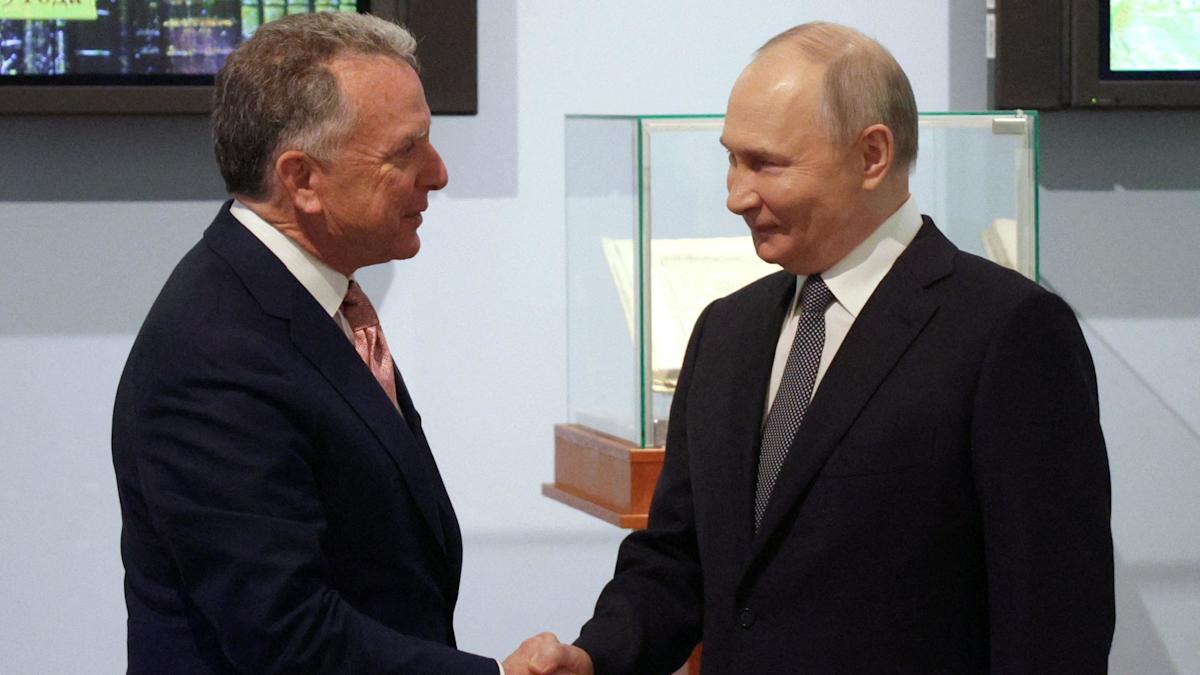U.S.-Russia Talks on Ukraine: Envoy Meets Putin Amid Ongoing Conflict
- Free Citizens Network
- Apr 12
- 3 min read

The ongoing dialogue concerning the conflict in Ukraine saw a significant meeting between U.S. envoy Steve Witkoff and Russian President Vladimir Putin in St. Petersburg last Friday. The discussions, which lasted over four hours, were aimed at finding common ground for a resolution to the crisis, even as U.S. President Donald Trump urged for expedited action from Russia to achieve a ceasefire in the war.
According to the Kremlin, the meeting was aimed at discussing various aspects of a potential settlement in Ukraine. Kirill Dmitriev, a special envoy and the head of Russia's sovereign wealth fund, characterized the session as “productive,” marking Witkoff's third meeting with Putin this year.
As these discussions unfolded, President Trump expressed his displeasure regarding the pace of negotiations, asserting via social media, “Russia has to get moving. Too many people ere [sic] DYING, thousands a week, in a terrible and senseless war.” This response underscores Trump's frustration with the lack of progress concerning a ceasefire.
Complications arose as Trump's Ukraine envoy, Keith Kellogg, faced backlash for remarks made during an interview with The Times. In the interview, Kellogg suggested the possibility of partitioning Ukraine into zones overseen by British and French troops, similar to post-World War Two arrangements in Berlin. This remark stirred controversy, prompting Kellogg to clarify on social media that he did not propose partitioning Ukraine, but rather spoke of a "post-ceasefire resiliency force in support of Ukraine's sovereignty." Neither the White House nor Ukrainian officials responded to Kellogg's comments immediately.
On the European front, defense ministers from various nations convened and agreed to provide €21 billion (approximately $24 billion) in military aid to Ukraine, emphasizing the ongoing nature of the conflict and the absence of any signs pointing toward a resolution.
Prior to the Witkoff-Putin talks, Kremlin spokesman Dmitry Peskov stated there should be “no need to expect breakthroughs,” highlighting that the normalization process between the two nations is ongoing. When questioned about the possibility of arranging a meeting between Trump and Putin, Peskov remarked, “Let’s see. It depends on what Witkoff has come with.”
In a related development, Ukrainian President Volodymyr Zelensky visited his hometown of Kryvyi Rih, which recently experienced a devastating missile attack, resulting in 19 fatalities, including nine children. Zelensky accused the Kremlin of deliberately extending the conflict and noted the involvement of “several hundred” Chinese nationals fighting alongside Russian forces, intensifying existing tensions.
Russian Deputy Foreign Minister Andrey Rudenko dismissed Zelensky's assertions, emphasizing that there is "nothing could be farther from the truth." Meanwhile, Zelensky reiterated the urgent need for air defense systems to ensure the safety of his country, stating that Ukraine is willing to purchase additional systems to fortify its defenses.
Trump, for his part, has previously claimed he could resolve the ongoing conflict “in 24 hours” and asserted that the war would not have occurred had he been president when the situation escalated. He condemned the war as one that "should have never happened" and characterized his sentiment toward Putin as “very angry” due to the stalled negotiations for a truce.
This meeting between U.S. officials and Russian authorities is part of ongoing efforts to restore diplomatic relations, with last February marking the first face-to-face talks since the onset of the full-scale invasion of Ukraine in 2022. Tensions remain high, however, as discussions for a ceasefire arrangement have repeatedly faltered, particularly when related issues such as sanctions lifted from Russia were brought to the table.
Recently, a prisoner swap took place involving Ksenia Karelina, a Russian-American sentenced to 12 years for supporting a Ukrainian charity, who was exchanged for Arthur Petrov, a dual German-Russian citizen implicated in illegal exports of sensitive technology to Russia’s military sector.
.png)